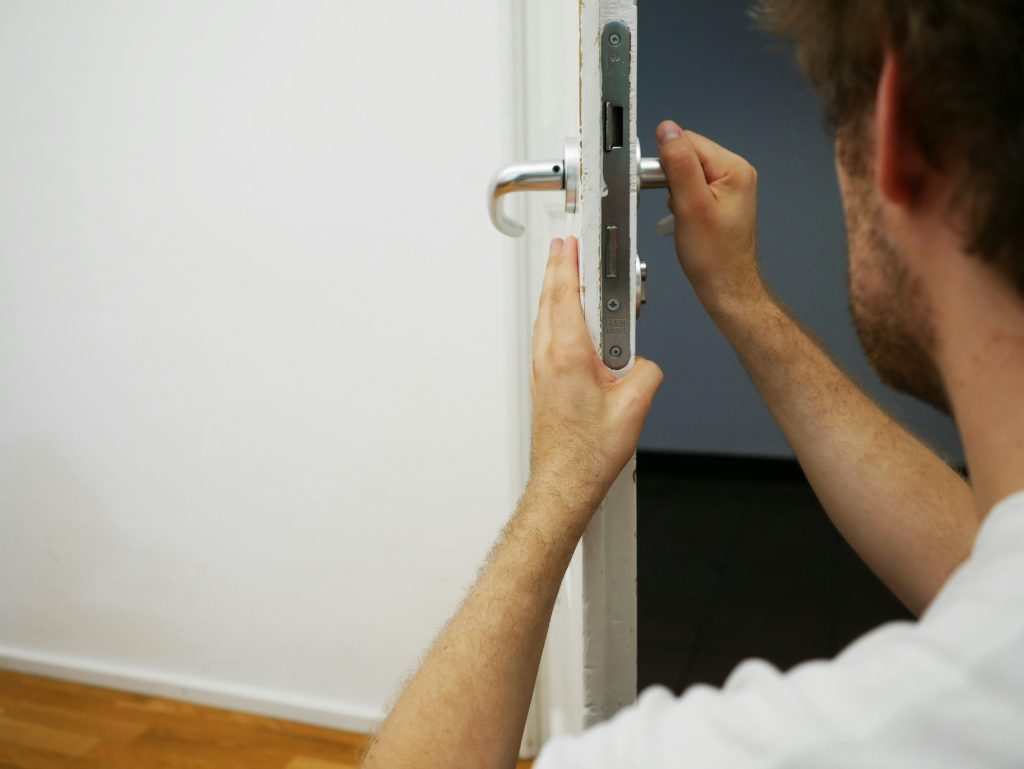Locked Out or Just Lost Your Key? When to Call a Locksmith

Have you ever found yourself standing outside your home, staring at your locked door, wondering if you should call a locksmith or just retrace your steps? You're not alone! Many people experience the frustration of being locked out or misplacing their keys, and knowing when to seek professional help can save you time, stress, and money. In this blog post, we’ll explore the differences between being locked out and simply losing your keys, when to call a locksmith, the benefits of hiring a professional, and tips for preventing future lockouts.
1. Understanding the Difference: Locked Out vs. Lost Key
1.1 What Does It Mean to Be Locked Out?
Being locked out typically means you cannot access your home, car, or office due to a malfunctioning lock or because you’ve forgotten your keys inside. Common scenarios include leaving your keys on the kitchen counter while rushing out the door or having a lock that suddenly breaks. The emotional impact of being locked out can be significant, often leading to feelings of stress, frustration, and helplessness.
1.2 Signs You’ve Just Misplaced Your Key
Before you panic and call a locksmith, take a moment to retrace your steps. Here are some tips for locating your misplaced keys:
-
Check Common Places: Look in your pockets, bags, or on surfaces where you typically leave your keys, such as tables or countertops.
-
Think Back: Recall the last time you had your keys. Visualize your movements and the places you visited.
-
Ask for Help: Sometimes, a fresh pair of eyes can spot things you might have missed.
2. When to Call a Locksmith
2.1 Immediate Situations Requiring a Locksmith
There are certain scenarios where calling a locksmith is essential:
-
Emergency Lockouts: If you find yourself locked out late at night or in an unsafe area, immediate assistance is necessary. This is especially critical if children or pets are inside the home.
-
Lost or Stolen Keys: If your keys are lost or stolen, it poses a security risk. Delaying the call can leave your property vulnerable to theft.
-
Broken Locks: A malfunctioning lock can compromise your security. Immediate repair or replacement is essential.
2.2 Non-Emergency Situations
In some cases, you might not need to call a locksmith right away:
-
Waiting for a Spare Key: If a family member is nearby with a spare key, it may be worth waiting for them to arrive.
-
Routine Maintenance: If you’re considering rekeying or upgrading locks, these can often be scheduled rather than requiring immediate assistance.
3. The Benefits of Hiring a Professional Locksmith
3.1 Expertise and Experience
Locksmiths undergo extensive training to master various lock mechanisms and security systems. Their expertise allows them to handle complex situations that DIY attempts may not adequately address. Trust the experts – they know what they’re doing!
3.2 Safety and Security
A professional locksmith can assess your home’s security and recommend improvements. They can install high-security locks and provide advice on maintaining your security systems, ensuring your home remains safe.
3.3 Time and Cost Efficiency
While hiring a locksmith may seem like an added expense, it can save you money in the long run. The cost of a locksmith typically ranges from $75 to $200 for lockout services, while DIY attempts can lead to costly damages and repairs. Hiring a professional ensures the job is done right the first time.
4. How to Choose the Right Locksmith
4.1 Research and Recommendations
Finding a reputable locksmith is crucial. Look for online reviews, ask for recommendations from friends or family, and check local listings to find trustworthy professionals.
4.2 Questions to Ask Before Hiring
Before hiring a locksmith, consider asking the following questions:
-
Are you licensed and insured?
-
How long have you been in business?
-
Can you provide references or customer reviews?
-
What services do you specialize in?
-
What are your rates, and do you provide a written estimate?
5. DIY Tips for Future Prevention
5.1 Key Management Strategies
To prevent future lockouts, consider implementing key management strategies:
-
Designated Spots: Establish a specific place to always keep your keys, such as a hook by the door.
-
Smart Key Finders: Invest in Bluetooth trackers that can help you locate your keys via an app.
5.2 Spare Key Solutions
Having a spare key can be a lifesaver. Consider safe hiding spots, such as with a trusted neighbor or in a secure lockbox.
Conclusion
In summary, knowing the difference between being locked out and simply misplacing your keys can save you time and stress. When in doubt, don’t hesitate to call a locksmith, especially in emergency situations. Their expertise can enhance your home security and provide peace of mind.
Save a trusted locksmith’s contact information for future reference, and share your own experiences in the comments below. Have you ever been locked out? How did you handle it?
By following these insights, you can navigate the often frustrating experience of being locked out with confidence and ease. Remember, a locksmith is just a call away when you need professional assistance!

